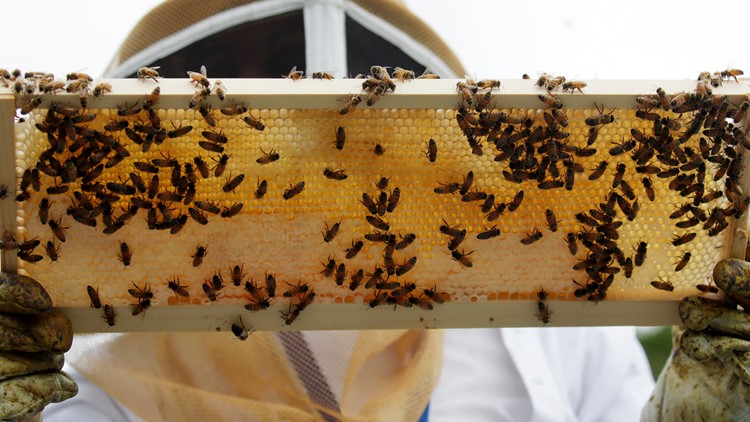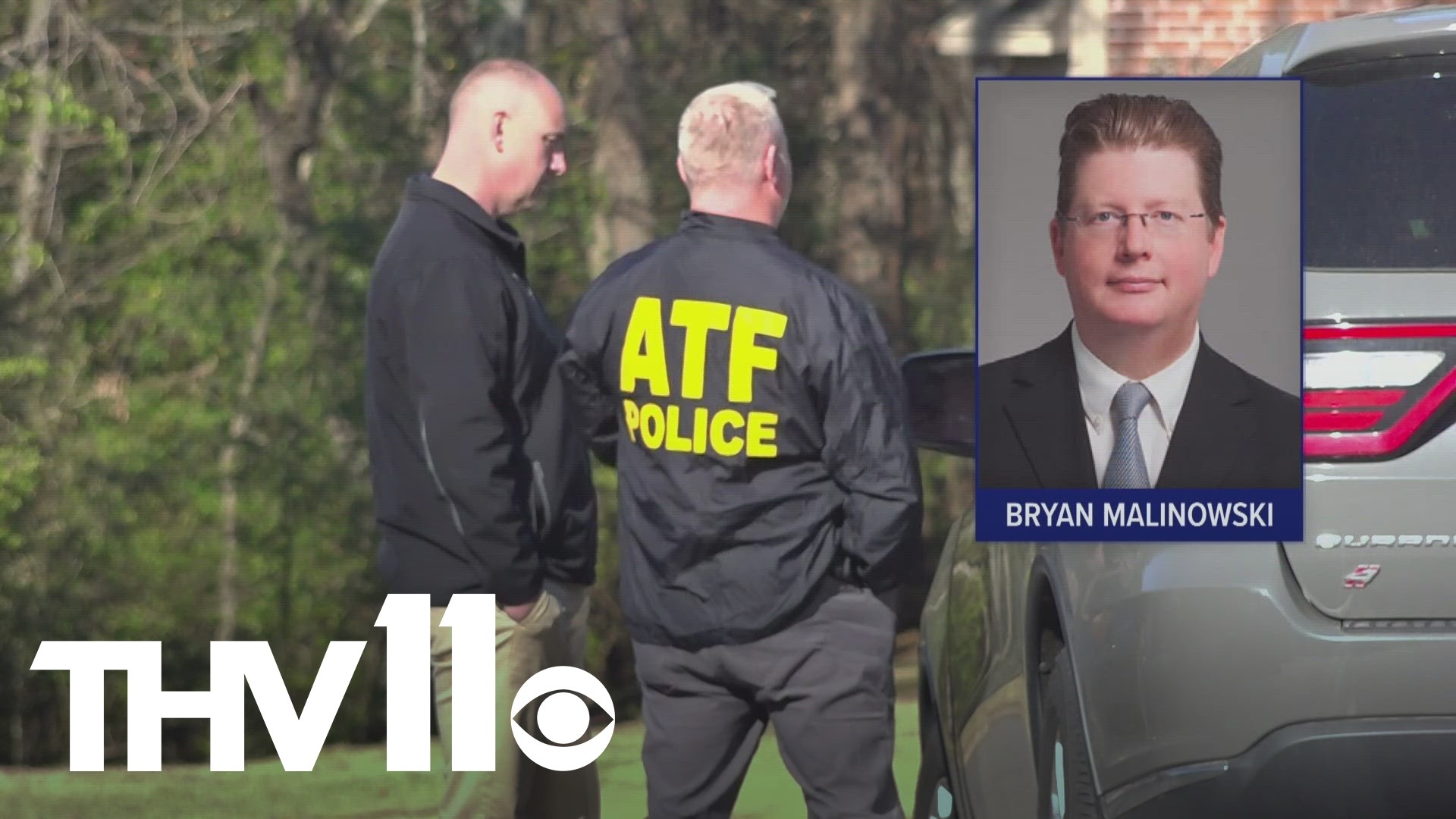WESTERN AUSTRALIA, Australia — Two aggressive forms of breast cancer could be treated with honeybee venom, according to a new study.
Researchers say a compound in the venom called melittin destroyed both triple-negative and HER2-enriched breast cancer cells in an Australian lab.
How did the study work?
Ph.D. researcher Ciara Duffy, 25, led the study at the Harry Perkins Institute of Medical Research in Western Australia. It tested more than 300 honeybees and bumblebees. The study, which was published in the peer-reviewed journal Nature Precision Oncology, can be read here.
What did scientists discover?
Duffy says extracts of honeybee venom were found to be "extremely potent." One concentration of it killed cancer cells in a lab within an hour without hurting other cells. The melittin compound on its own was also found to be effective at stopping cancer cell growth.
Scientists discovered they could also recreate a synthetic version of the compound in the lab.
Duffy notes, however, the more venom used, the more toxic it became to the mice it was tested on.
The World Cancer Research Fund and American Institute for Cancer Research says breast cancer is the most commonly found cancer in women worldwide.
One of the most aggressive types of breast cancer, triple-negative breast cancer, accounts for about 10-15 percent of all breast cancers. It's usually treated with surgery, radiotherapy and chemotherapy.
What does this mean for future cancer treatment?
Western Australia's chief scientist told the BBC the research is "incredibly promising," because the honeybee venom compound in the study interfered with the cancer cells' ability to replicate.
"It provides another wonderful example of where compounds in nature can be used to treat human diseases," Professor Peter Klinken told the BBC.
Scientists say this research still has a long way to go. Chemical compounds that fight cancer cells in labs may not always work as a treatment for humans.
"Many compounds can kill a breast cancer cell in a dish or in a mouse. But there's a long way to go from those discoveries to something that can change clinical practice," Alex Swarbrick told the BBC. He's an Associate Professor from the Garvan Institute of Medical Research in Sydney.
Still, scientists are excited, because this isn't the first time bee venom has been used as a cancer treatment. The melittin has shown anti-cancer properties for other types of cancer like melanoma.
What does this mean for the bees?
This could actually be a win-win situation. The population of honeybees has been declining for years, but they're an irreplaceable part of our food chain. The USDA says one of every three or four bites of food you eat is thanks to hardworking bees. The agency says bees pollinating our crops increases their value by $15 billion annually.
What other people are reading right now:
- Tropical Depression 17 forms in the Atlantic
- Sheriff: Man arrested for shooting and killing 19-year-old who made finger gun and said 'pow pow'
- After jogger detained for fitting burglar description, Florida sheriff offers him a job
- Florida Congressman Matt Gaetz in Twitter spat with 'Two and a Half Men' actor
- Sarasota deputy placed on leave after struggle with teenage inmate
- Jacob Blake speaks out directly to the public for first time since police shooting
►Breaking news and weather alerts: Get the free 10 Tampa Bay app
►Stay In the Know! Sign up now for the Brightside Blend Newsletter



